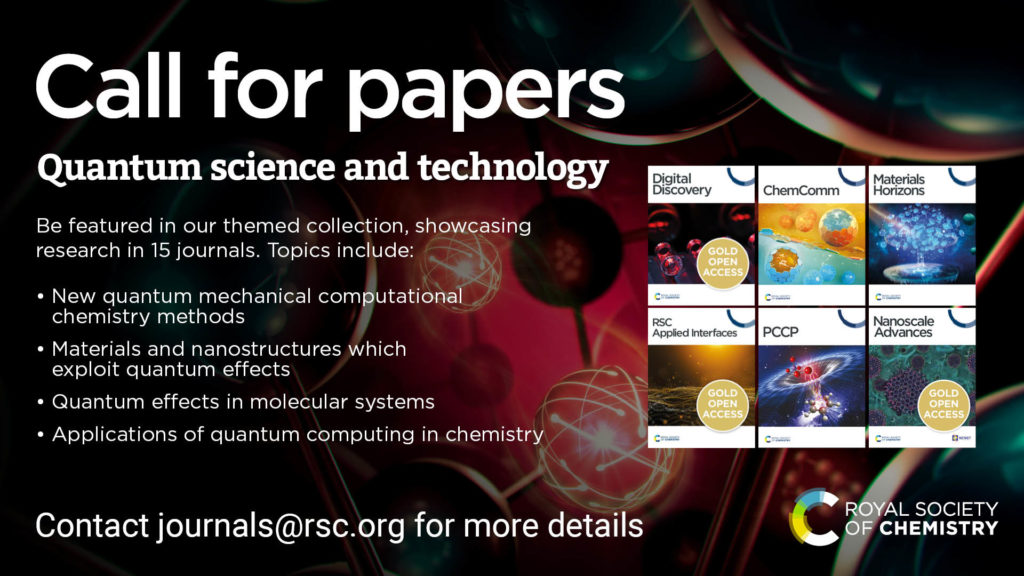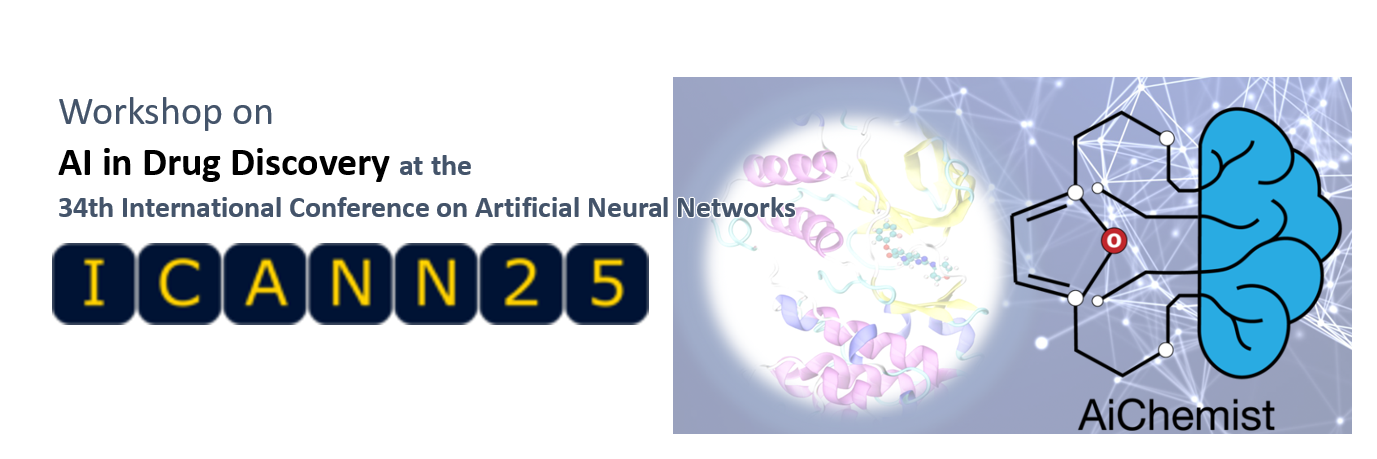
We are delighted to announce a call for papers celebrating the UNESCO International Year of Quantum Science and Technology 2025. This collection across a selection of our materials, nanoscience, physical chemistry and interdisciplinary journals is now open for submissions.
The submission deadline is 1 October 2025.
For this broad collection of articles celebrating Quantum Science and Technology we encourage contributions on topics including, but not limited to:
- New quantum mechanical computational chemistry methods
- Focusing on new methods to provide expanded variability (customization) to programs and algorithms applied to molecular and materials discovery.
- Studies on materials and nanostructures which exploit quantum effects
- The engineering and investigation of materials and nanostructures that exploit QM effects. The collection seeks papers that offer insights into the understanding of Quantum effects or mechanistic insights rather than routine experimental studies that focus on material / device performance.
- Cross-disciplinary studies looking at quantum effects in molecular systems
- Studies that bridge chemistry with adjacent disciplines to understand electronic and fundamental effects such as quantum dot cellular automata.
- Applications of quantum computing in chemistry
- The design of new quantum algorithms, and application of existing algorithms, in the calculation, prediction and design of atomic, molecular, and materials properties.
This collection will be hosted across the following journals.
Chemical Science, Chemical Communications, RSC Applied Interfaces and RSC Advances
Digital Discovery and Physical Chemistry Chemical Physics
Materials Horizons, Journal Materials Chemistry A, Journal Materials Chemistry B, Journal Materials Chemistry C, and Materials Advances,
Nanoscale Horizons, Nanoscale and Nanoscale Advances
We hope you will accept our invitation to contribute to this collection. If you are interested, please contact us at journals@rsc.org and let us know which journal you would like to contribute to. If you have any questions, we would be delighted to send you more information. If you are unsure which journal would be the most suitable for your work or would like to check a topic’s suitability for a journal, we would be happy to help.
Publishing open access with RSC journals unlocks the full potential of your research – bringing increased visibility, wider readership and higher citation potential to your work. As a not-for-profit organisation serving the chemical sciences community we ensure that our article processing charge (APC) remains the most competitive of major publishers. More details can be found here. You can also use our journal finder tool to check if your institution currently has an agreement with the RSC that may entitle you to a discount or fully cover the APC.
Articles will be added to the collection as soon as they are accepted, and promotion of the collection is scheduled for the end of 2025. Please mention the collection name “Quantum Science and Technology” when you submit your manuscript. Please note that all submissions will undergo peer-review in the usual manner and must comply with each journal’s usual journal scope and standards.




